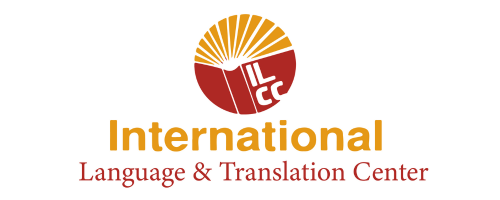Learn the most famous Arabic words
Have you ever been captivated by the melodic sounds of Arabic? Maybe you’re planning a trip to an Arabic-speaking country or simply curious about this beautiful language. Well, fret no more!
This article is your gateway to understanding some of the most famous Arabic words.
We’ll delve into greetings, expressions of gratitude, and even some everyday vocabulary, all designed to give you a foundation for appreciating the richness of Arabic. So, whether you’re a seasoned traveler or a complete beginner, get ready to embark on a linguistic adventure!
The importance of learning basic words in mastering the Arabic language
Mastering the Arabic language, like any language, begins with a foundation built upon basic words. These fundamental building blocks serve as the cornerstone for communication, comprehension, and cultural understanding. Here’s why learning basic words is essential for mastering Arabic:
- Communication: Basic words form the backbone of everyday communication. Whether engaging in simple greetings, asking for directions, or ordering food, familiarity with common vocabulary facilitates effortless interaction with native speakers. It lays the groundwork for more complex linguistic exchanges as proficiency develops.
- Comprehension: Understanding basic words provides a key to unlocking the meaning of more complex language structures. As learners encounter new phrases or sentences, their comprehension improves when they can identify familiar words within them. This gradual process of piecing together language comprehension begins with a solid grasp of basic vocabulary.
- Cultural Insight: Language is deeply intertwined with culture. By learning basic Arabic words, learners gain insight into the customs, traditions, and values of Arabic-speaking communities. Each word carries layers of historical, religious, and societal significance, offering a window into the rich tapestry of Arab culture. This cultural awareness fosters empathy, respect, and cross-cultural connections.
- Confidence: Proficiency in basic words boosts learners’ confidence in their language abilities. As they acquire vocabulary related to everyday scenarios, learners feel more comfortable navigating real-life situations in Arabic-speaking environments. Confidence is a crucial motivator in language learning, encouraging learners to persist in their studies and strive for fluency.
- Building Blocks for Fluency: Basic words lay the groundwork for expanding vocabulary and achieving fluency. Once learners have mastered foundational vocabulary, they can progressively learn more advanced words and language structures. This incremental approach to language acquisition ensures a solid linguistic foundation, enabling learners to express themselves accurately and fluently over time.
The most famous Arabic words for daily communication
For daily communication in Arabic-speaking contexts, several words stand out as essential due to their frequent use and universal applicability. Here are some of the most famous Arabic words for daily communication:
- Marhaba (مرحبا): This word means “hello” or “welcome” and is commonly used as a greeting in both formal and informal settings.
- Shukran (شكراً): Meaning “thank you,” this word expresses gratitude and appreciation and is used extensively in daily interactions.
- Na’am (نعم) and La (لا): “Yes” and “no” respectively, these simple yet crucial words are used to affirm or negate statements and questions.
- Kam (كم): This word means “how much” or “how many” and is indispensable for asking about quantities or prices.
- Min Fadlak (من فضلك): Equivalent to “please” in English, this polite phrase is used when making requests or seeking assistance.
- As-Salamu Alaikum (السلام عليكم): This traditional Islamic greeting translates to “peace be upon you” and is commonly exchanged among Muslims worldwide. The response is “Wa Alaikum As-Salam (وعليكم السلام),” meaning “and upon you be peace.”
- Ma’a Salama (مع السلامة): This phrase means “goodbye” or “go with peace” and is used when parting ways.
These words and phrases form the backbone of daily communication in Arabic-speaking societies, facilitating interactions, expressing politeness, and fostering connection. Whether exchanging greetings, expressing gratitude, or seeking information, familiarity with these famous Arabic words enhances communication proficiency and cultural understanding in everyday contexts.
The most famous Arabic words related to time
Understanding time is crucial in any language, and Arabic is no different. Here are some of the most famous Arabic words related to time that will get you started:
Basic Units:
- اليوم (al-yawm): Today
- أمس (ams): Yesterday
- غدًا (ghadan): Tomorrow
- ساعة (saa’a): Hour
- دقيقة (daqiqa): Minute
- أسبوع (usboue): Week
- شهر (shahr): Month
Other Time-Related Words:
- وقت (waqt): Time (general concept)
- مرة (marra): Time (as in “one time,” “two times”)
- الآن (al-aan): Now
- صباح (sabaah): Morning
- مساء (masa): Evening
- قبل (qabl): Before
- بعد (baعد): After
By memorizing these words, you’ll be able to ask and answer basic questions about time, understand schedules, and navigate daily activities in Arabic. Remember, practice is key! Don’t hesitate to find opportunities to use these words in conversation or writing to solidify your understanding.
Arabic words related to feelings and sensations
Arabic, like any language, has a rich vocabulary to express a wide range of feelings and sensations. Here are some of the most famous Arabic words related to emotions:
Happiness:
- فَرح (Farah) – Joy
- سُرور (Surur) – Contentment
- سَعادة (Sa’ada) – Happiness
Sadness:
- حُزن (Huzn) – Sadness
- كآبة (Ka’aba) – Depression
- غَمّ (Ghamm) – Grief
Love and Affection:
- حُبّ (Hubb) – Love
- عَشق (Ishq) – Passion
- وَلَه (Walah) – Infatuation
Anger and Frustration:
- غَضَب (Ghadab) – Anger
- غِيظ (Ghayz) – Wrath
- عَصَب (Asab) – Irritation
Fear:
- خَوف (Khawf) – Fear
- رُعب (Ru’ub) – Dread
- هَلَع (Hala’) – Panic
Surprise:
- مُفاجأة (Mufaja’ah) – Surprise
- دَهشة (Dahsha) – Astonishment
- إِعْجَاب (I’jaab) – Amazement
Relief:
- إِرْتِياح (Irtiyah) – Relief
- تَسْلِيم (Tasleem) – Surrender
- رَاحَة (Rahah) – Comfort
Pain:
- أَلَم (Alam) – Pain
- مُعَانَاة (Mu’anah) – Suffering
- شَقِي (Shaqi) – Agony
Excitement:
- إِثَارَة (Itharah) – Excitement
- حَمَاس (Hamaas) – Enthusiasm
- تَشَوّق (Tashawwuq) – Eagerness
Peace:
- سَلام (Salaam) – Peace
- هُدُوء (Hudo’) – Tranquility
- سُكُون (Sukoon) – Serenity
These words allow speakers of Arabic to articulate their feelings and sensations with precision and nuance, enhancing communication and emotional expression. Whether experiencing joy or sorrow, love or anger, the Arabic language provides a diverse and nuanced vocabulary to capture the depth and complexity of human emotions.
Arabic words related to places
Arabic, a language rich in geographical and cultural diversity, offers a plethora of words to describe different types of places. Here are some of the most famous Arabic words related to various locations:
- بَلَد (Balad) – Country or homeland.
- مَدينة (Madinah) – City.
- قَرْيَة (Qaryah) – Village.
- شارع (Shari’) – Street.
- مَيْدَان (Maydan) – Square or plaza.
- مَطَار (Matar) – Airport.
- مَحَطَّة (Mahattah) – Station, such as a train or bus station.
- مَيْنَاء (Mina’) – Port or harbor.
- سَاحَة (Sahah) – Courtyard or open space.
- جَامِع (Jami’) – Mosque.
- مَدِينَة تَارِيخِيَّة (Madinat Tariqiyah) – Historical city.
- حَدِيقَة (Hadiqah) – Garden or park.
- مَكْتَبَة (Maktabah) – Library.
- مُتَنَزَّه (Mutannazah) – Recreational area or amusement park.
- جَامِعَة (Jami’ah) – University.
- مُسْتَشْفَى (Mustashfa) – Hospital.
- مَسْجِد (Masjid) – Mosque.
- مَسْتَوْطَنَة (Mustawtanah) – Settlement or colony.
- مَكْتَب (Maktab) – Office.
- حَانُوت (Hanoot) – Store or shop.
These Arabic words encompass a wide range of places, from urban centers to rural communities, historical sites to modern amenities. They reflect the linguistic richness of Arabic and its capacity to describe the diverse landscapes and environments found across the Arab world and beyond.
In the end, we can say that the ILCC Center is your key to understanding an ancient culture and communicating with millions of speakers around the world.
ILCC
Discover the world of languages and translation with us!
Join us and explore the world of languages and translation with the highest quality and professionalism! On our website, we offer you a unique and distinctive learning experience that allows you to acquire new language skills with ease and enjoyment.
Our center is distinguished by a team of qualified and specialized language teachers who ensure that they provide personal and effective lessons that perfectly meet your needs. Whether you want to learn a new language or improve your current level, we are here to help you achieve your goals smoothly and effectively.
In addition, our website provides accurate and professional translation services, where our team works to provide high-quality and reliable translations in various fields. Whether you need to translate official documents, marketing content, or scientific articles, you can rely on us to provide translation services with the highest standards of quality and accuracy.
On our website, we combine comprehensive language education and distinguished translation services to provide you with a unique and distinctive learning experience. Join us now and start your journey in the world of languages and translation with confidence and determination.
You can contact us on WhatsApp from here → ILCC.
Conclusion
In conclusion, delving into the most famous Arabic words offers not just a linguistic journey but a profound exploration of culture, history, and human connection. From the bustling streets of Cairo to the tranquil oases of Morocco, Arabic words resonate across borders, weaving tales of tradition, faith, and innovation.
By mastering basic vocabulary, learners unlock the door to effective communication, cultural understanding, and linguistic fluency. These foundational words serve as the cornerstone for navigating daily interactions, expressing emotions, and forging connections with Arabic-speaking communities worldwide.
Moreover, as learners delve deeper into the rich tapestry of Arabic vocabulary, they embark on a transformative journey of discovery. Each word carries layers of meaning, reflecting the nuances of Arab culture, heritage, and identity. Whether expressing joy or sorrow, gratitude or longing, Arabic words encapsulate the diverse spectrum of human experience, fostering empathy, respect, and cross-cultural appreciation.
In essence, learning the most famous Arabic words is not merely an academic pursuit but a gateway to a world of shared understanding and interconnectedness. It is an invitation to explore the beauty and complexity of the Arabic language, celebrating its timeless legacy and enduring relevance in an ever-changing world. So, let us embrace the power of words and embark on a journey of learning, discovery, and connection through the vibrant tapestry of Arabic vocabulary.








